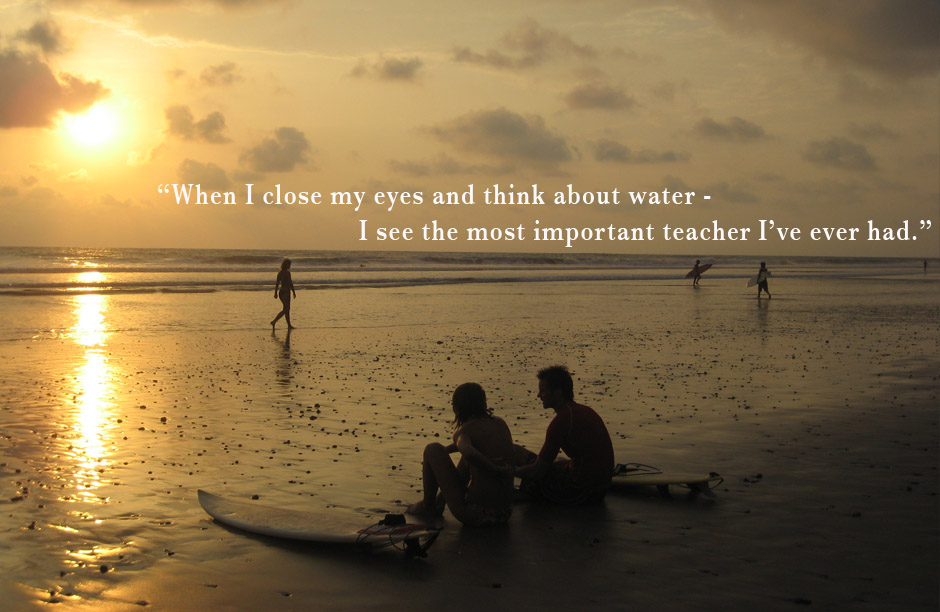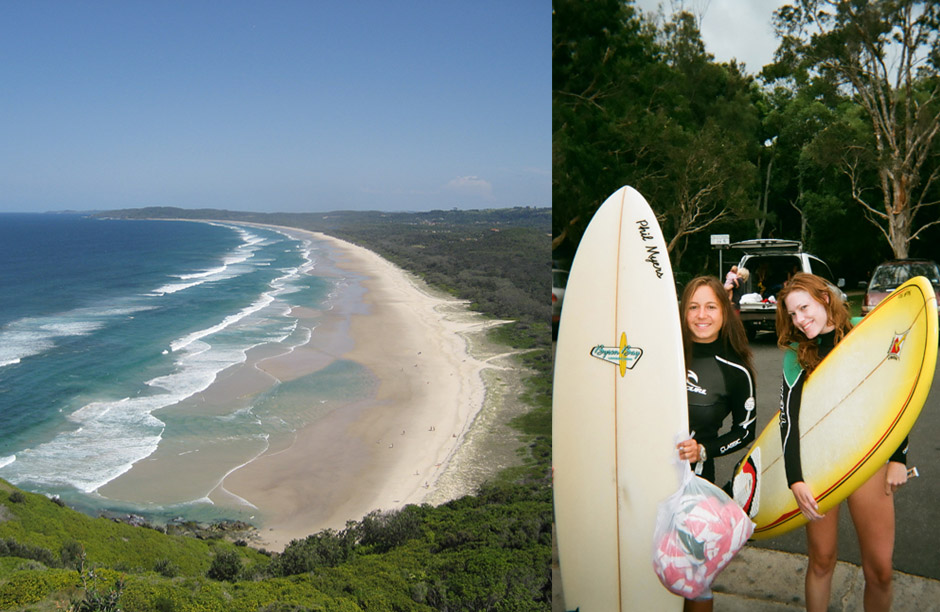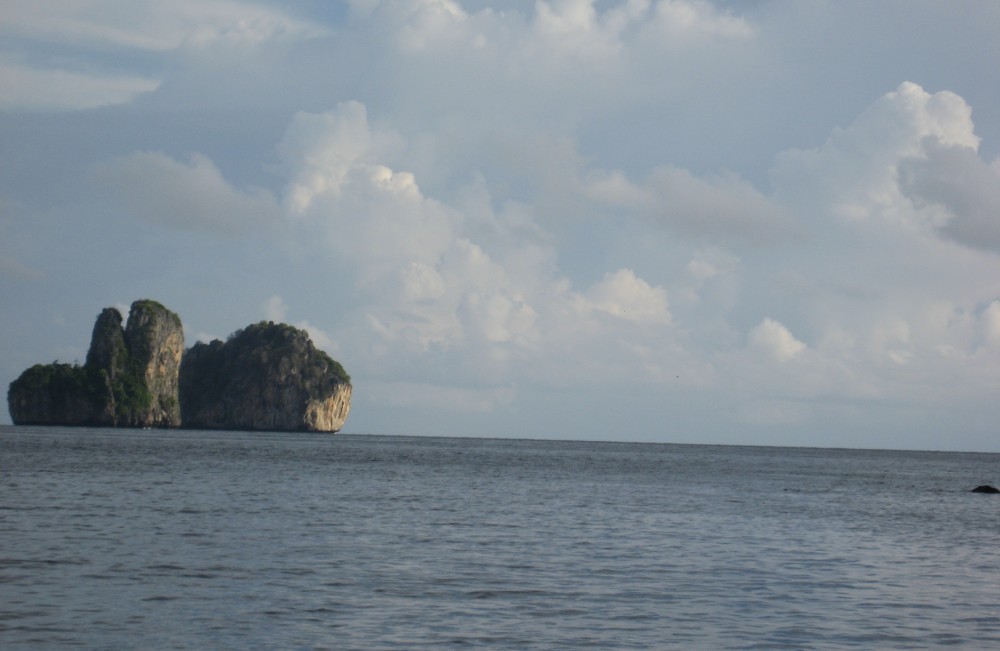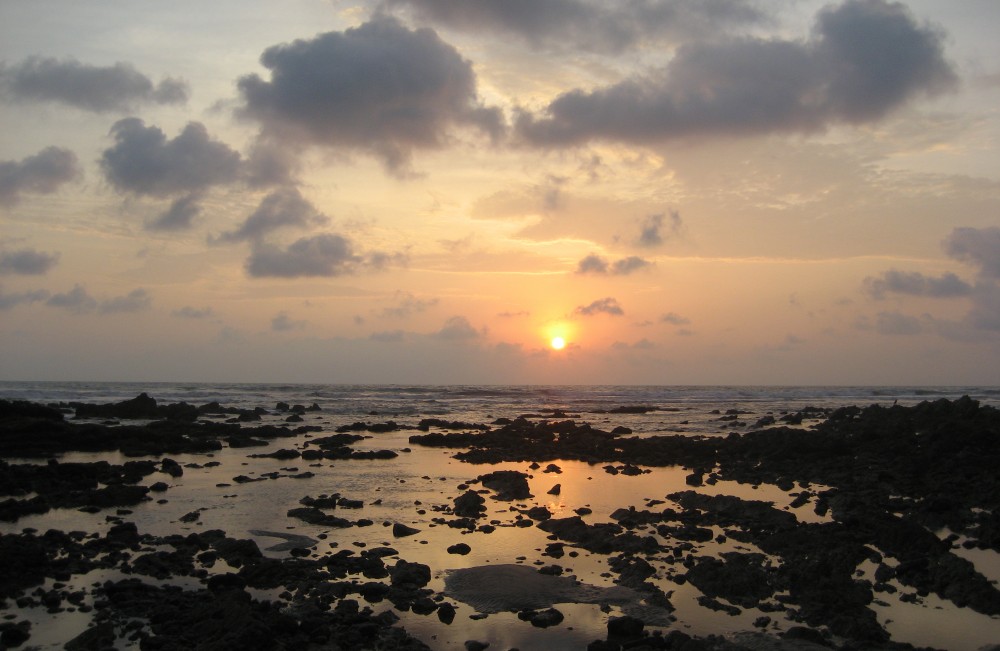PAST ISSUES

ISSUE No.1 WATER
In our premier issue we start with the source of all life: water. The Water Issue travels to the ends of the earth and beyond - from Central Africa, to Sweden, to the Palestinian Territories, and even into Outer Space. A movie producer takes a break from the high stress world of Hollywood to learn to surf - a 1 week vacation turns into 1 year as she becomes a student of water the "greatest teacher I have ever known" - Philippe and Alexandra Cousteau share the Legacy of their grandfather's love for the ocean - the obsession with bottled water falls under scrutiny...and more.
A Year in Water
By Katherine WernerClose your eyes and think about water. This is something that each and every person on the planet can do. No matter where you live, or what your personal experience is with the element, you have ceaselessly come in contact with it throughout your life. If, however, I ask a selection of people to talk about their personal experiences with water, I would end up with a large variety of responses. It is one of life’s most necessary resources. It serves as both the divider and the connector of continents, and a creator and destroyer of life. For many, it facilitates a favorite pastime or a means for making a living. I use water all day long, and often times, I take it for granted. One thing, however, that I will never take for granted and never forget, is that water inspired me to take the most important journey of my life.
LESSON #1: PATIENCE
I didn’t have one legitimate complaint about the way that things had gone for me in the first twenty-four years of my life. I was moving along swiftly into the realms of a successful adulthood – good job, hard working, social. It was at that time, that the ocean changed everything for me. I had accrued so much unused vacation time in my two years at work that they actually forced me to take a week off. I decided to plan a fun trip with a friend of mine – we decided on Costa Rica to learn to surf. The sport was completely foreign to me, but I knew that surfers looked good in their bathing suits, and I thought that it would be a good way to see a different part of the world.
During the first two days of our trip, a few things became abundantly clear to me. First of all, surfing was a lot harder then it looked. I had fallen out of shape sitting at my desk over the years, and had little control over my limbs. I also quickly realized how impatient I had become during my years living in New York.
“Patience New Yorker, not yet.” My instructor, Ricardo, told me over and over shaking his head and grabbing onto the back of my board as I tried to paddle forward for a wave.
“You have worked so hard to get out here, now you have to wait for the right wave. You’ll tire yourself out if you keep going after nothing.” He pointed to the horizon, trying to show me what he already saw so clearly.
“See, that’s your wave. Wait for it.”
I saw nothing, and so a few seconds later, despite his prediction of my perfect wave, I tried again. Like any good teacher, this time he let go of my board. No sooner had I fallen face first into the water, frustrated at its lack of push, then I looked back to see Ricardo smiling as he rode the perfect wave, my perfect wave, towards the shore. “Patience Gringa!” he shouted as he glided past. The rest of the week went on much like this. The ocean allowed me a few lucky rides, but mostly it gave me mouthfuls of seawater and a lot of wedgies.
When my trip was over, as I rode in a taxi suntanned and sore towards home, I had inexplicable tears streaming down my cheeks. I would be lying if I said that I felt a huge connection to the water after that first week. I was no more in tune with the ocean when I left Costa Rica then I had been when I showed up. Somehow, however, my priorities in New York seemed small now in comparison to the vast ocean. I had stared desperately at the horizon all week trying to see the distant waves, and what I saw instead was a huge world that I had been missing. I needed to have the patience to allow myself the time to see it. Over the next six months, planned out the trip. I saved as much money as I could, sublet my apartment, and gave notice at my job. I would take a year to travel around the world, surfing as much as I could. I would head west, and never go a day without seeing the ocean. Costa Rica was my natural first stop. If I was going to surf around the world, I had to learn to surf.
The only way to get better at surfing is to spend time getting used to the ocean. For me, this was an intensely frustrating and humbling process. I had never come up against something that I could not study, learn, and eventually master. In surfing, there is nothing to study. No two waves are exactly the same, and often, achieving a good ride is more about feeling the ocean than any technical knowledge of the sport. During the first three months of my travels, I learned to let time go by without counting the minutes. Sometimes when it seems like you are doing nothing in the water, you are doing all of the most important preparations for your future ride. Before I knew it, I had gained strength and confidence. I felt ready to move on and test my surfing abilities in a different part of the world.
LESSON 2: APPRECIATION
The first time I paddled out in Australia, I was shaking with fear. I had never experienced waves like the ones that crashed onto the Gold Coast. As they walloped over my head, not letting me up for a second, I began to fully appreciate the grand proportions of the sea. Although it was frightening, it was also exciting to be part of something that was far stronger and greater then myself. It was, perhaps, because of this early initiation into Australian waters, that I was able to instantly comprehend the pride that the locals possess for their coastline.
Approximately eighty-five percent of Australians live on the coast. This seems to greatly influence the culture’s sensibilities when it comes to the water. Their veneration of nature, specifically the ocean, is reminiscent of religion in other parts of the world. Whether someone was telling me about a great white shark attacking a surfer, or a pod of dolphins hanging out just off the break, there was never a question of that animal’s right to exist in their waters. Australians are taught at a young age how to both enjoy the ocean and respect it. Therefore, the beaches are pristine. I saw teenagers combing the beach after a bonfire, leaving not one beer can or cigarette butt behind, and I shuddered to think of the remnants of our parties back home. As a society, they understand, more then any other that I have come across, that they have been given this amazing setting to use and enjoy, but they do not own it, they are not entitled to it, and therefore they need to take care of it. To see this popular sentiment hold strong throughout an entire country, and to briefly be a part of it, was one of the greatest most educational experiences of my trip. When I left Australia, I took with me a different type of appreciation for the ocean that I had never had before.
LESSON 3: HUMILITY
In every country I traveled to, the sea seemed to take on a new characteristic in my mind. It wasn’t until visiting the beaches of Thailand, however, that I understood it as a force to be reckoned with. I arrived in Ko Phi Phi expecting honeymooners and seaside bungalows. Although, I was not looking for a romantic getaway myself, it was a much-welcomed respite from the heat and bustle of Bangkok. I was excited to put my feet back in the sand and look out into the ocean. I had heard stories of the island’s one-of-a-kind beauty, and I was not disappointed. Unfortunately, I also arrived to a tsunami warning. Apparently, warnings occur often, as small tremors in the Indian Ocean that used to be overlooked, are now constant sources of fear. Intellectually, I understood that there was little to no threat, but that didn’t completely calm my fears. Having spent countless hours being pounded by waves at different coastlines around the world, I had a newfound understanding of my defenselessness in comparison to the sea’s great weight. I couldn’t help but think back, with a whole new sense of awe and dread, to the videos that I had seen in the winter of 2004, of the big wave engulfing miles of coastline in a matter of minutes.
Ko Phi Phi had been almost seamlessly rebuilt, and the tourism was booming once again. If I scratched just one layer under the surface, however, and asked someone about their personal experience with the Tsunami, it was clear that their wounds were still very fresh. Every person on the island had been directly effected by that wave, whether they had lost a child, or a brother, or a home.
“I was on my way out in my boat when I saw the water start to recede.” Anat told me as he took me on a tour around the island. “I knew what that meant, but I also knew that there would be no time for me to get back in to warn everyone. If I was going to survive, I had no choice but to turn my boat out to sea and drive fast towards the horizon. I tried to call my brother and my mother to tell them to get up high, but by then it was too late. The whole island was washed away.”
It was hard to hear stories like this and not ask myself how I would have coped with such a tragedy. Would I have been able to stay on the island? Would I have been able to take tourists on boat rides and point with great pride at the beautiful rock formations that made it famous? How could I ever look out at the blue calm ocean again, without feeling anger and resentment towards it for all of the damage that it had caused in my life? The locals still rely upon the ocean for their daily food and income, so in that way, they are intricately tied to it as a source of life. Perhaps, Anant understood the ocean better then I ever could. Maybe he saw it as a beautiful sleeping giant who, every once in a while is going to wake up and remind you who is boss. I don’t know exactly how they did it, but it seemed to me that the people of Ko Phi Phi made peace with their great neighbor. They looked out at the water with a sense of humility, and an awareness of human fallibility in its presence.
When I close my eyes and think about water I see the most important teacher I have ever had. Eventually, I made my way back home to New York, but I returned a different person from the one who left a year earlier. I used the ocean as an excuse to travel, and then it taught me about the world and my place in it. As my love for the ocean grew, it served as a connecting point with the people I met along the way. It helped me to conquer fears, and taught me the limits of my strengths. I will be forever grateful for the series of events that led me to water.



